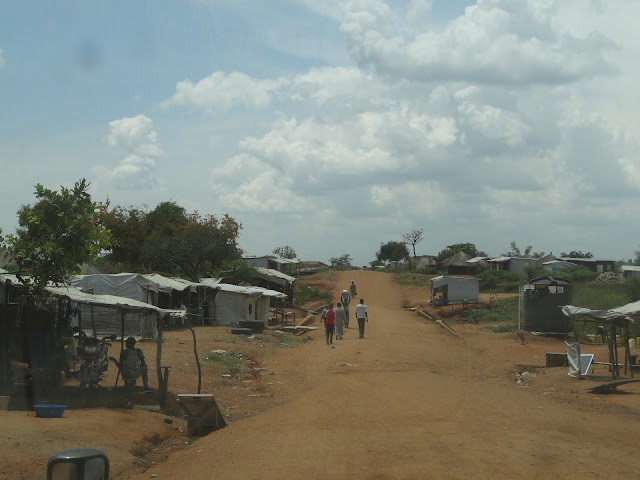Over 2018, Sara and I led three computer maintenance trainings together. Although I might know more about computers than Sara (thanks to growing up with so many IT friends), Sara also knows some things I don't know, and we are both teaching 100% of the time during these trainings. One of us is lecturing while the other is going around and helping people to do what we are instructing them to do on their computers. I'm sorry that I failed to get any photos of Sara teaching.

We were able to train the World Renew Tanzania team, a group of pastors and development workers from Soroti, and then development workers from World Renew's partner organizations in the Teso region. These trainings are not our favorite thing to do. It's one of the only times we feel like we are sacrificing in our work. But we have had opportunities to learn how to use computers well, and we feel a burden to share our knowledge and skills with others here in East Africa.

Why don't we enjoy these trainings? Sara doesn't enjoy having to spend more time with computers and would rather have her hands in dirt or plants! And for me, these trainings are frustrating because most people have serious computer issues that I cannot fix during a training. For example, there isn't much I can do if everyone has an pirated version of Windows and pirated version of Microsoft Office, because the people that sold them their computers in Kampala sold them stolen versions that are not activated. There's not much I can do when people have old and decrepit computers that need to be recycled or at least reformatted. There's not much I can do when people need Windows updates, but they don't have the money to pay for the 10 gigabytes of data to download such big updates.


Our trainings are really a mix of random knowledge and skills. For example:
- Physical maintenance
- Software maintenance and free programs that will fix errors
- Backing up files and preparing for reformatting
- How to track a stolen computer
- How to make a good password
- How to protect your computer while on WIFI
- How to protect your computer from viruses
- Email sorting options, email signatures, email away messages
- How to use Google Docs, Google Calendar, and Google Drive
- How to install and use Open Office in case you don't own Microsoft Office legally
- How to password protect your computer
- How to make archive files
- How to adjust your battery and power options
- Changing what programs start up when you restart your computer
- How to make internet bookmarks and back them up
- The only really fun part is having everyone take a typing test, and then showing people programs and websites where they can take lessons to learn how to type faster. Most people who take the test get between 2 words per minute and 20 words per minute. Imagine how much their productivity could be increased if they went up to 60 or 100 words per minute?

A new recent addition to our training, although only a couple minutes long, is that we explain how to verify articles on the internet before sharing them on social media. It is terribly common here for people to believe whatever someone sends on social media, and then they widely share it. (Of course this happens in the USA too!) One lady at one of our trainings refused to eat the rice at lunch, because there was a fake news article on social media about the Chinese creating fake plastic rice. At another training, people were afraid to eat eggs because of a fake article going around about people creating fake eggs. In various whatsapp groups we are a part of, it is almost a daily task for us to correct fake news, whether about wars Donald Trump is starting, or about how eating eggs and bananas together can kill you, or about giant snakes in South America that are as big as a building. More important than correcting fake news that we see, we are helping people to learn how to check sites like www.snopes.com, and helping people to learn how to search on google for the real story.



























